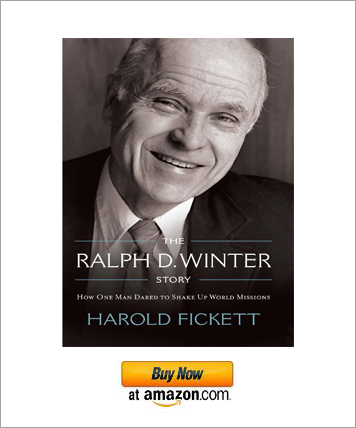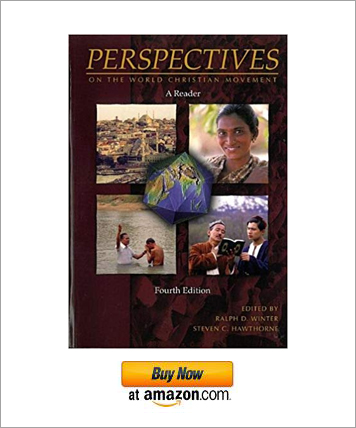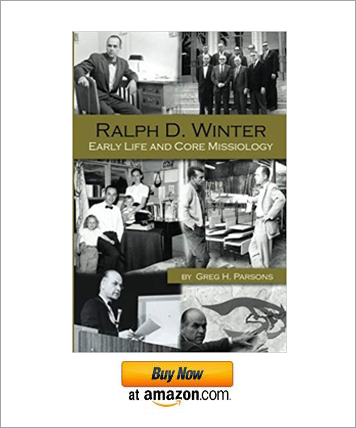Dr. Ralph Dana Winter was born in 1924 in Los Angeles, California, to Hugo and Hazel Winter. He was the second of three sons. His father was an engineer who designed freeways. He made his commitment to Christ in a Christian Endeavor meeting as a teen.
Little is known of his childhood, but his work as a Presbyterian missionary in his adult years made a difference in the world. He advocated for outreach among people who had not previously been reached with the gospeland founded the USCWM – the United States Center for World Mission, as well as the William Carey International University and the International Society for Frontier Missiology.
Dr. Winter attended four different universities, beginning with the California Institute of Technology, from which he earned a Bachelor of Science degree in Civil Engineering. He went on to Columbia University for a Master’s degree in Teaching English as a Foreign Language, followed by the Princeton Theological Seminary, where he got a Bachelor of Divinity. He achieved his Ph.D. at Cornell University, in the fields of Anthropology, Linguistics, and Mathematical Statistics. He also spent some time in the Navy during World War II.
As a person, Winter tended to be a mild-mannered bookworm, the epitome of a professor. While his speaking style could put people to sleep, many found the content fascinating enough to prevent this.
He began his ministry in 1956 in the country of Guatemala, after being ordained at Princeton Theological Seminary. He spent ten years there, teaching the gospel of Christ and encouraging the missionaries there. During his time at Fuller Theological Seminary, he taught missionaries using the experience he had from his time in Latin America. His teaching went beyond the classroom, and Winter’s Theological Education by Extension (TEE) movement was formed to take seminary education to students, pastors, and other Christians in Guatemala.
Just before the age of fifty, Dr. Winter spoke in Switzerland at the Congress for World Evangelization, which was an event that was organized by Billy Graham. His speech focused on people rather than countries, pointing out that there were groups of people that had not yet heard the gospel, to which missionaries should be sent. Evangelist Billy Graham is quoted as saying, “Ralph Winter has not only helped promote evangelism among many mission boards around the world, but by his research, training, and publishing he has accelerated world evangelization.”
Some of the concepts that he discussed in his presentation in Switzerland included these:
- the fact that missionaries are still needed in foreign fields,
- that some groups of people are more difficult to reach (both physically and spiritually) and are therefore often overlooked,
- that young people would be wise to make a career of serving God in the mission field,
- that carrying the gospel to people in different cultures can be difficult, and new ways may be needed to successfully bring God’s word to some new culture groups,
- that it matters where missionaries go, not just how many are going,
- that understanding, awareness, outreach, and especially prayer need to be increased,
- that “church” may be different for different cultures,
- that the Holy Spirit must be the power behind planning missions,
- that missionaries must be sent from a variety of cultures, not just western,
- that missionaries must be careful what practices they teach to new believers in different cultures,
- that global networking of Christians is important,
- that new agencies were needed (which included the formation of the USCWM),
- and that faith must be expressed in the context of the new believers being taught.
His goal was to get missionaries to bring the gospel to indigenous people without causing offense due to their traditions. He referred to himself as a “social engineer,” which was a particularly appropriate appellation. This was surprising to those who attended Seminary with him, because his attitude then appeared to be that old things should be replaced with new.
While helping churches in foreign countries has always been a missionary’s work, Winter expanded that concept into spreading out from the original location in order to reach the surrounding people.
In 2005, at eighty years old, Dr. Winter was included in Time magazine’s list of the 25 Most Influential Evangelicals in America. The list included men like Rick Warren and James Dobson.
Winter’s first wife Roberta joined him in Guatemala. Their four daughters also worked in missions-related occupations. Roberta died of multiple myeloma in 2001, only six weeks before their 50th anniversary. He married Barbara in July of 2002.
One of the wise saying Winter liked to repeat is this statement from Dawson Trotman: “Never do anything others can or will do, when there are things to be done that others can’t do or won’t.”
Dr. Winter also varied G.K. Chesterton’s famous quote, “If a thing is worth doing, it is worth doing badly,” to say, “If a thing is worth doing, it is worth doing poorly.”
These quotes are attributed to Dr. Winter:
- “Risk is not to be evaluated in terms of the probability of success but by the value of the goal.”
- “Nothing that does not occur daily will ever dominate your life.”
- “You can get a lot done if you don’t care who gets the credit.”
In 2009, at the age of 84, Dr. Winter entered God’s presence after suffering with lymphoma and multiple myeloma.
Learn more about Dr. Ralph Winter in these books:
The Ralph D. Winter Story
This biography examines the life and accomplishments of Ralph Winter.
Perspectives on the World Christian Movement: A Reader (Perspectives)
Over 150 mission-minded people contributed to this collection which was brought together by Ralph Winter and Steven Hawthorne.
Ralph D. Winter: Early Life and Core Missiology
This is another biography, including much information about the life of Ralph Winter, from Guatemala through his speech in 1974.
You can also read the article Ralph Winter wrote entitled “The Two Structures of God’s Redemptive Mission.”




